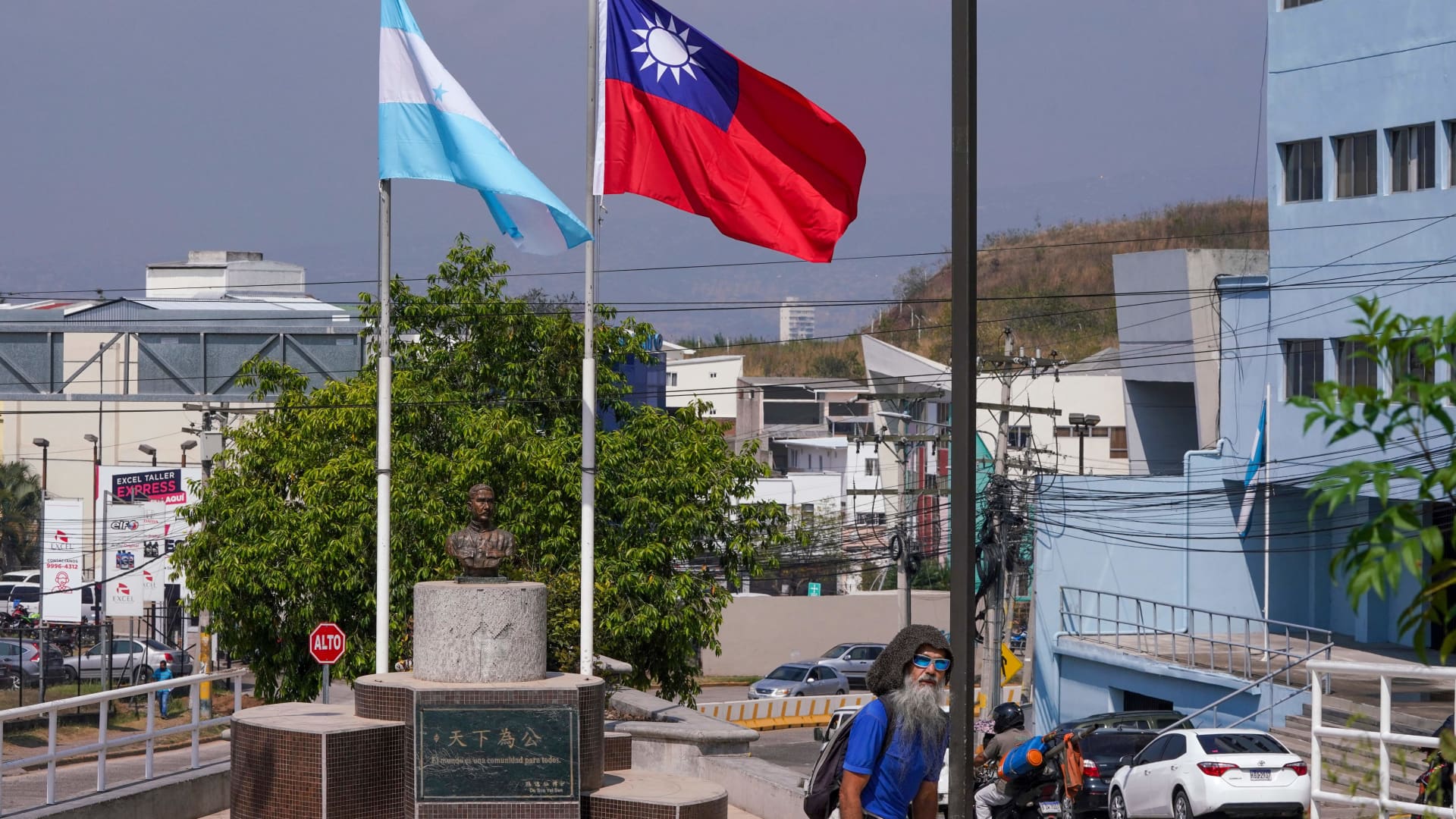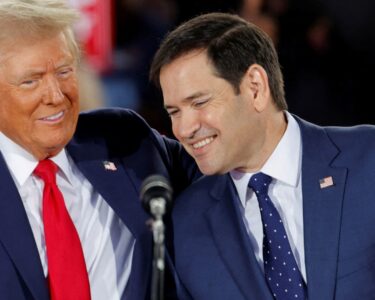Honduras’ decision to cut diplomatic ties with Taiwan in favor of China is yet another sign of growing Chinese influence in Latin America.
For decades the Asian superpower funneled billions of dollars into investment and infrastructure projects across the region. Now, as geopolitical tensions simmer between China and the Biden administration, that spending has paid off.
Honduras’ decision was the second foreign policy coup in a week for China, which brokered an agreement between Iran and Saudi Arabia to reestablish diplomatic relations last week.
Now, Taiwan will be recognized by only 13 countries. But some of the few remaining in Latin America, like Paraguay and Guatemala, promised Wednesday to keep their support for Taiwan.
Honduras’ minister of foreign relations, Enrique Reina, told The Associated Press on Wednesday that Hondurans “are grateful” for their past relationship with Taiwan, but that their economic links to China ultimately pushed their government to cut diplomatic ties.
“These are political decisions. The world has been moving in this direction,” Reina said. “It is a complex decision, we understand, but Honduras’ foreign policy should seek to benefit the people. We believe that this step will benefit the country.”
The Central American nation follows the steps of El Salvador, Nicaragua, Panama and the Dominican Republic in turning their backs on Taiwan.
Honduras’ announcement on Tuesday was a blow to the Biden administration, which has rather fruitlessly tried to persuade countries in the region to stick with Taiwan. Taiwan, a U.S. ally, has pushed for sovereignty at the same time that Chinese President Xi Jinping has insisted the island is firmly under its control.
In that sense, Tuesday’s announcement also exemplifies the American government is “losing its grasp on” Latin America, said David Castrillon-Kerrigan, research-professor on China-related issues at Colombia’s Externado University.
“For countries, like Honduras, not recognizing the government in Beijing meant missing opportunities,” Castrillon-Kerrigan. The United States “is definitely losing influence on every front, especially the economic front, but also diplomatically, politically and culturally.”
It has left the island with a dwindling number of allies. Reina told AP that the Biden administration “must understand and respect” Honduras’ needs and decisions.
But some, like Paraguay and Guatemala, remained steadfast in their support for Taiwan. Guatemalan officials reiterated the government’s “recognition of Taiwan as an independent nation that shares democratic values.”
Over the past two decades, China has slowly carved out a space for itself in Latin America by pouring money into the region, investing in major infrastructure, energy and space projects.
Between 2005 and 2020, the Chinese have invested more than $130 billion in Latin America, according to the United States Institute of Peace. Trade between China and the region has also shot up, expected to reach more than $700 billion by 2035.
That investment has translated to rising power for China and a growing number of allies.
In Honduras, that has come in the form of construction of a hydroelectric dam project in central Honduras built by the Chinese company Sinohydro with about $300 million in Chinese government financing.
Meanwhile, in many countries, the U.S. government has not stepped in with similarly sized projects.
While many view the investment as a positive step for nations that often struggle to pull together funds for development, some, like June Teufel, professor of Political Science at the University of Miami, worry about the long-term ripple effects rising Chinese power could have.
Teufel said China is wielding that new influence as “a diplomatic weapon.”
In many countries across in Africa and Latin America, Chinese investment has been marred by mounting debt in developing nations. In many cases, infrastructure projects can only be repaired by Chinese companies, racking up a higher bill, said Teufel.
“It’s a little bit like the drug dealer saying to the potential customer, the first dose is free,” Teufel said. “It gets another country abandoning Taiwan, which is something it has been wanting to do for a long time, depriving Taiwan of all its remaining allies.”






